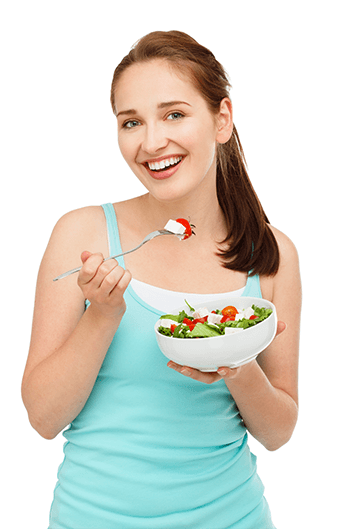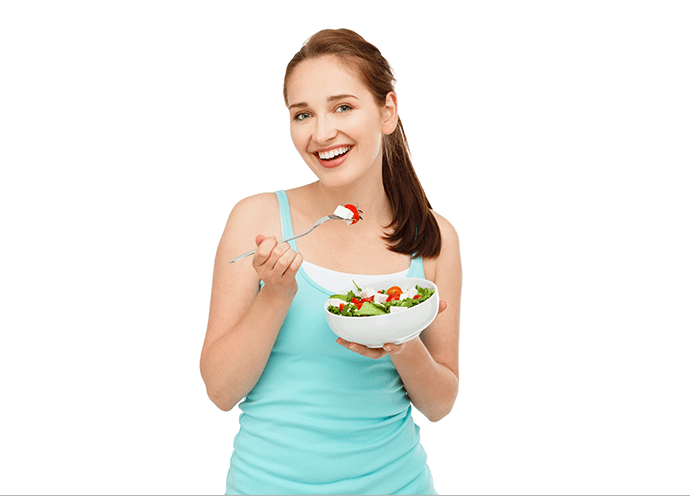How to get rid of excess weight?
Everyone wants to look good. By getting rid of excess weight, you improve not only your appearance but also your health.
Excess weight increases the chances of cardiovascular and oncological diseases, as well as diseases of the joints and spine. Let's find out how you can become more elegant and healthier.
Nutrition
This is probably the most important element of the equation. The solution seems obvious – reduce the amount of food consumed. But if you do this incorrectly, your basal metabolism will decrease in response, and along with it, your mood and energy for physical activity. The balance will again favor fat tissue gain, and the stress of under-eating and lack of necessary nutrients can lead to serious health disorders.
When adjusting the amount of food consumed, you need to follow these rules:
- The change in food consumption should not be temporary. You should not go on a temporary diet, but change your eating habits permanently.
- There is no need to drastically cut calorie intake. You need to act gradually, without swinging the "scale" too quickly.
- There is no need to excessively reduce calories. To lose weight, it is enough to decrease the number of calories by no more than 15-20% of the body's needs. By the way, if you increase your physical activity – the amount of food should also be increased.
- You need to refuse or drastically decrease the consumption of sugar and other sweets, including sugary drinks and packaged juices. Sugar causes the release of insulin, which forces the energy obtained from food to be pumped into fat cells. Additionally, sugar consumption disrupts the natural regulation of appetite, forcing us to eat more than necessary for current needs.
- The diet must be complete. For the healthy functioning of the body, all macro and micronutrients are necessary. An incomplete diet leads to the disruption of body functions, and consequently, to a decrease in both basal metabolism and physical activity.
A complete diet must consist of the following components
Physical Activity
It seems that everything is very simple: the more you move – the more calories you burn. But there are nuances here too. Many people cannot force themselves to exercise.
And the issue is not only, or not so much, laziness. As is known, human behavior is largely controlled by hormones. Stress and poor nutrition, as well as some illnesses, lead to hormonal imbalances. In this case, the body almost entirely converts the energy obtained from food into fat, and there is no energy left for physical activity. First, you need to try to get rid of stress and ensure sufficient sleep. To rule out hormonal diseases, you should consult a doctor. The consumption of sweet products should be reduced or excluded, as they reduce the energy reserve by turning it into fat.
The increase in physical load should be gradual. You can start with a walk at a moderate pace, gradually increasing the volume and intensity of workouts.
The body naturally reacts to increased physical activity with an increase in appetite. This is normal, you should remember that the calorie deficit should not exceed 15-20%. In addition to calorie expenditure, sport leads to an increase in muscle mass. This is very important, as it increases the level of basal metabolism. You should not forget to consume a sufficient amount of protein so as not to hinder the growth of muscle tissue.

Basal Metabolism
Even when lying on the couch, our body consumes energy. For an ordinary person, more than 2/3 of energy expenditure is due to basal metabolism.
The level of basal metabolism is individual for each person. It depends on genetics, hormonal balance, the percentage of muscle mass, and the person's physical activity.
The secret to easy weight loss lies precisely in the basal metabolic rate. The thing is that the level of basal metabolism can be influenced. First, by increasing **muscle mass**. Muscles spend energy even at rest, especially during the recovery period between workouts.
Special bacteria can also raise the level of basal metabolism. The bacterium **Lactobacillus gasseri** positively affects metabolism, adjusting the body to increase energy consumption at rest. Furthermore, lacto and bifidobacteria positively affect digestive processes, contributing to the correct absorption of nutrients.
Preparing homemade yogurt is simpler than it seems. You will need milk, starter culture, a pot, and a large towel.
And if you have a yogurt maker or a multi-functional electric cooker (multicooker) – preparing yogurt will be even easier.
Drinking **kefir** before bed for weight loss is indeed a good idea. It is a light, low-calorie product that contains many valuable nutrients, without which a complete diet is impossible. It is very important to provide the body with all the necessary substances, especially during a diet when the amount of food is limited. Homemade kefir is a truly live product that positively affects digestion and metabolism.

Preparing homemade kefir is very easy – after all, room temperature is enough for its fermentation. Just add the starter culture directly to the milk package and let it ferment at room temperature for 20-24 hours.
Find the right VIVO product for you
- Improves nutrient absorption
- Reduces belly fat
- Normalizes body weight
- Good source of protein and calcium






